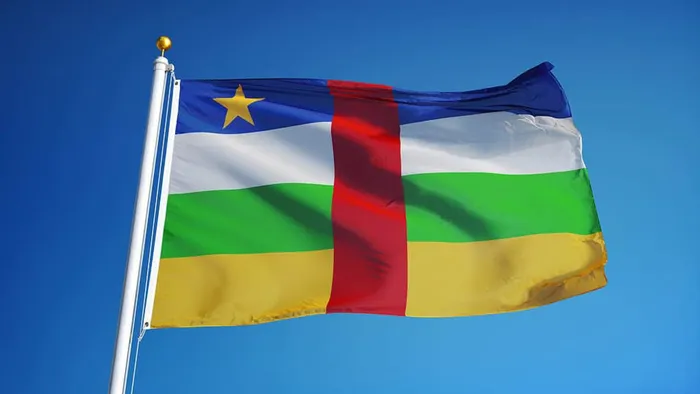'We don't want neo-colonialists to impose their will': official on CAR's Independence Day

Picture: ©railway fx/Shutterstock.com - The flag of the Central African Republic combines the traditional colors of France with those of Africa.
By Maxim Grishenkin
African countries, including the Central African Republic, do not want other powers to dictate their will to the continent's leaders, and African states should shape their own policies, Samuel Feizounam Ouanfio, CAR's director general of the National Research and Pedagogical Development Institute, told Sputnik Africa.
"Today, we don't want the neocolonialists to continue to impose their will to African or Central African leaders after independence. What's important today is that each state should be able to define its vision of development," the official said.
Ouanfio added that it is necessary to attempt to prioritize the ambitions of the CAR instead of the interests of Western countries.
In this vein, the expert noted that in the more than 60 years since independence, the mentality of Central Africans has changed towards self-reliance.
"Today, however, the mentality of Central Africans has evolved: they don't want others to speak for them, they want Central Africans themselves to take charge of their destiny and speak for themselves," Ouanfio remarked.
The official admitted that since independence, the CAR has repeatedly experienced crises that have slowed down the country's development. He added that there is an opinion among the African country's residents that CAR did not develop since "France strangled the country's mineral resources."
Speaking about the situation in the country today, Ouanfio noted the "crucial role" of Russian military instructors to guarantee security in the country. Security, in turn, will make it possible to build up ties between Russia and CAR in such areas as education, health care, rural development, and the mining industry, the chief stressed.
Independence Day
Therefore, Ouanfio pointed out, Independence Day is a great opportunity for all Central Africans to "reflect on what we have achieved and what challenges we face in developing our country."
CAR's national holiday is celebrated annually on August 13, marking independence from France.
In the late 20th century, what is now the Central African Republic could not escape the so-called 'Scramble for Africa', as France, Germany and Belgium vied for control of the continent.
The French, who already controlled large areas of adjacent Africa, were prevailed upon to create a dependent territory called Ubangi-Shari in 1894.
In 1910, Ubangi-Shari became part of the French Equatorial Africa, which also incorporated Chad, Gabon and the Middle Congo (the modern Republic of the Congo).
In 1946, all residents of French Equatorial Africa became French citizens and became eligible to elect local legislatures. Ten years later, amended French legislation allowed for the beginning of self-government in the colonies.
The French constitutional referendum of September 1958 dissolved the French Equatorial Africa, and on December 1 of the same year the Assembly declared the birth of the autonomous Central African Republic.
CAR is a state in the heart of the African continent with a territory of about 622,400 square kilometers and a population of 4.6 million people.
According to the UN, the republic is among the least developed countries in Africa in socio-economic terms, however, the country has rich deposits of uranium, oil, gold and diamonds.
*Grishenkin is an editor at Sputnik News. He specializes in African studies and Foreign Affairs.
This article was first published in Sputnik.